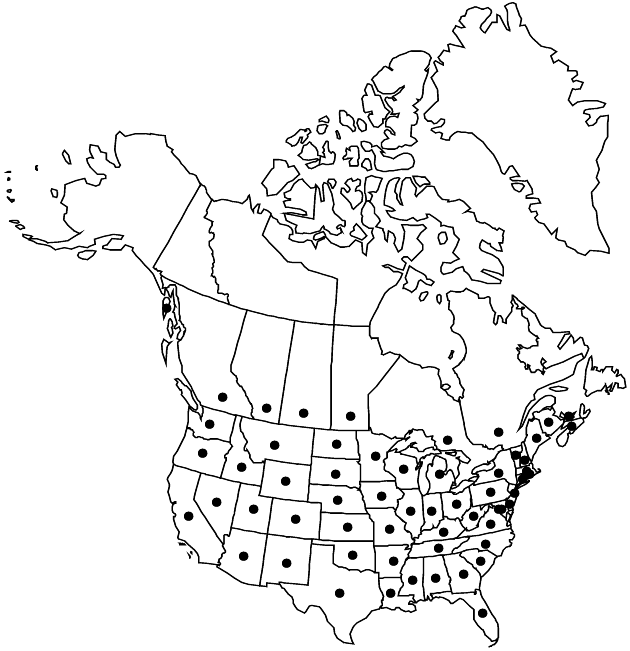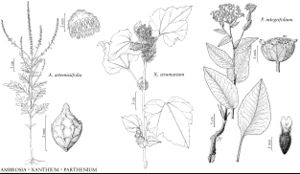Xanthium strumarium
Sp. Pl. 2: 987. 1753.
Plants 10–80 (–200) cm; nodal spines 0. Leaves: petioles 20–100 (–140+) mm; blades suborbiculate to ± pentagonal or deltate, 4–12 (–18+) × 3–10 (–18+) cm, sometimes palmately 3–5-lobed, abaxial faces green, hirtellous. Burs 10–30+ mm. 2n = 36.
Phenology: Flowering Jul–Oct.
Habitat: Damp or seasonally wet, often alkaline, soils, waste places, margins of agriculture
Elevation: 10–2000 m
Distribution

Alta., B.C., Man., N.B., N.S., Ont., P.E.I., Que., Sask., Ala., Alaska, Ariz., Ark., Calif., Colo., Conn., Del., D.C., Fla., Ga., Idaho, Ill., Ind., Iowa, Kans., Ky., La., Maine, Md., Mass., Mich., Minn., Miss., Mo., Mont., Nebr., Nev., N.H., N.J., N.Mex., N.Y., N.C., N.Dak., Ohio, Okla., Oreg., Pa., R.I., S.C., S.Dak., Tenn., Tex., Utah, Vt., Va., Wash., W.Va., Wis., Wyo., Mexico, Central America, South America, widely in Old World
Discussion
Recognition of a dozen or more taxa (treated as species, subspecies, varieties, and/or forms) has been proposed for plants treated together here as Xanthium strumarium. Bases for the various taxa mostly involved subtle differences in the burs.
Selected References
None.
